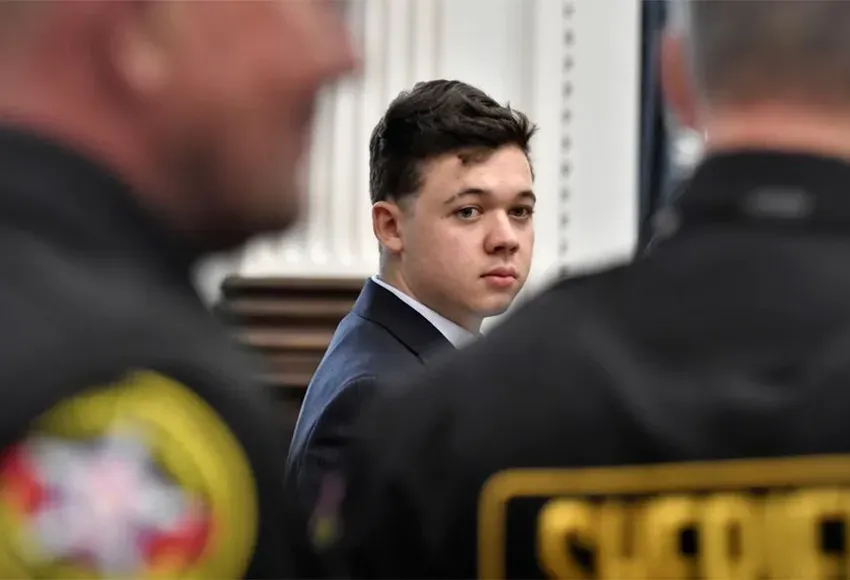On November 19, Kyle Rittenhouse was acquitted of five felony charges: first-degree reckless homicide, two counts of first-degree recklessly endangering safety, first-degree intentional homicide, and attempted first-degree intentional homicide. The jury's decision is an unsurprising but still devastating turn of events. But this case that divided the country stood for more than just this white man's claim of self-defense, it represented white privilege as a whole.
While race was not the primary focus in this case, it is woven into the events leading up to the shootings, the treatment of the defendant, and the verbiage used while trying his case. It was the shooting of an unarmed Black man named Jacob Blake – seven times to be exact – by a white police officer that started the protests. Blake is paralyzed from the waist down; the officer remains on the police force.
Rittenhouse was 17 years old when he traveled from his home in Illinois to Kenosha, Wisconsin, armed himself with an AR-style semiautomatic rifle, and made false claims of being an EMT at a racial justice protest to help protect property. Rittenhouse had already committed crimes by breaking curfew that night and unlawfully possessing a dangerous weapon while under the age of 18 (the latter charge was dismissed by the judge).
However, footage shows that before he shot three men (Joseph Rosenbaum, 36, and Anthony Huber, 26, were killed, and Gaige Grosskreutz, now 27, was wounded) he was greeted (while holding his weapon) and offered water by the police.
Afterward, he was able to go back home to Illinois before his mother convinced him to turn himself in. Once he did, his interview was cut short when detectives realized he didn't understand his Miranda rights. During his trial, Judge Bruce Schroeder ruled that prosecutors would not be allowed to refer to Rittenhouse's victims as "victims." Defense attorney Mark Richards referenced the Blake shooting in his closing argument, saying, "Other people in this community have shot people seven times and it's been found to be OK, and my client did it four times in three-quarters of a second to protect his life."
A Black man in a similar situation to Rittenhouse would not have been given these courtesies. A Black man who had just shot three white men in the vicinity of police officers could never have gone home to sleep in his own bed, been considered eligible for a self-defense claim, or even have lived to see his "fair" trial. But it's no secret Black Americans don't have the same rights that white Americans do.
As is the case in many states, Wisconsin laws are sympathetic to homicide defendants claiming self-defense. Once this claim is made, prosecutors must prove that the defendant did not act in self-defense.
This trial hinged on the prosecution proving, beyond a reasonable doubt, that Rittenhouse wasn't acting in self-defense, without regard for the circumstances that by law prohibit claims of self-defense in court. Prosecutor Thomas Binger even stated in his closing argument, "When the defendant provokes this incident, he loses the right to self-defense. You cannot claim self-defense against a danger you create." The problem was that he couldn't prove that provocation to the jury, which in this instance was nearly impossible.
Unfortunately, the jury justified Rittenhouse's actions with their not-guilty verdict at a time that could influence the decision of another murder trial taking place in Georgia. Three white men are on trial for the murder of Ahmaud Arbery, an innocent Black man out for an evening jog. These men are also claiming self-defense, although they chased him down with firearms.
They claim Arbery was a robbery suspect (despite officials having no records to support this), who they shot because he tried to take control of a shotgun from them. Hopefully the jury in this case can see that, by chasing Arbery down with guns, this innocent man's actions clearly reflect him reacting in self-defense against them.


